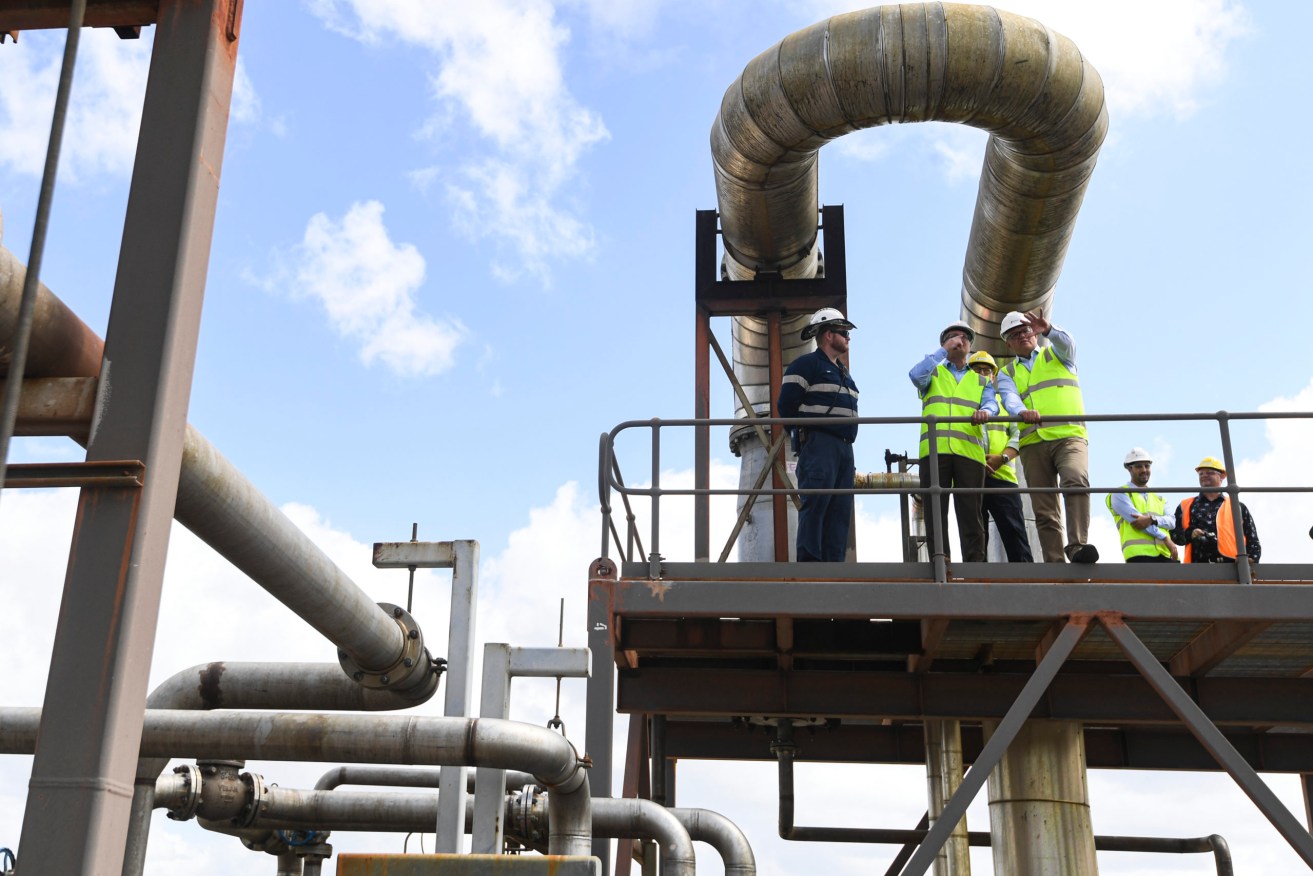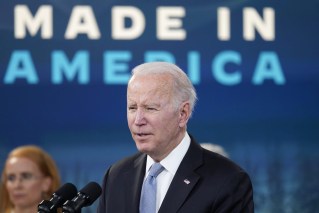Saving jobs, and the environment, in an industrial town
The heavy industries of the Gladstone region have been defending their right to function and provide jobs in the face of calls to shut down some factories for the sake of the local environment.

Prime Minister Scott Morrison and local workers looking out over Gladstone during a recent visit to the Northern Oil Refinery. (AAP Image/Lukas Coch)
The Gladstone region has been one of the biggest producers of aluminium for decades, with Boyne Smelters Limited (BSL) being the pinnacle of it all.
BSL produces carbon dioxide equivalents in the form of greenhouse gases, and in the case of Gladstone, that impact has been visibly accelerated.
There have been several calls to shut aluminium smelters down, causing debate both in and out of government settings. And while such allegations surrounding the environmental impact of BSL’s production line do have merit, there is a lot more going on within the smelter than meets the public eye.
For four years, Ellen Terry has been working for BSL in the environmental services team. In an interview about BSL’s gas emissions, Terry revealed that her whole job revolved around keeping the smelter as eco-friendly as possible.
“There is a certain amount [of greenhouse gases] we will always emit, because of the technology we use,” she said.
“The process involves anodes, which are carbon based, which when burned will release carbon dioxide.”
Yet, while Terry admits some gas emissions are unavoidable, she claims the smelter isn’t directly working against the local environment.
“There are other things we can actually control – things like the amount of natural gas we use in our burners to produce the anodes, the different fuels we use on site, and controlling our reduction line.”
Along with these independent variables, Terry also revealed that BSL is restricted by the safe-guard mechanism which is a national framework which limits large emitters.
BSL has a baseline of how much carbon they can emit, and, if they go over it, they have to pay a set rate per tonne.
That’s where Terry’s job kicks in, as the environmental department at BSL works to keep BSL’s gas emissions as low as possible.

Boyne Smelters in Gladstone. (Supplied)
By implementing the work of this department Boyne Smelters Limited has reduced its impact on the environment, all while creating new jobs for the community and maintaining BSL’s contribution to the economy.
With 1300 employees, shutting BSL would be a devastating loss not only to the Gladstone region but Australia’s economy as a whole.
“People often ask me how I could work at BSL knowing the impacts its production line has on the environment. But I see it as putting myself in a situation where I can work to be a part of the solution,” Terry said.
Climate change protests effectively paused during the social distancing restrictions of 2020 but restarted again recently with a student-led rally.
InQueensland’s Media Academy is a partnership involving Education Queensland and UQ, teaching high school students about critical thinking and the journalism skills needed to develop the next generation of public interest journalists. Their stories will be published regularly by InQueensland.










